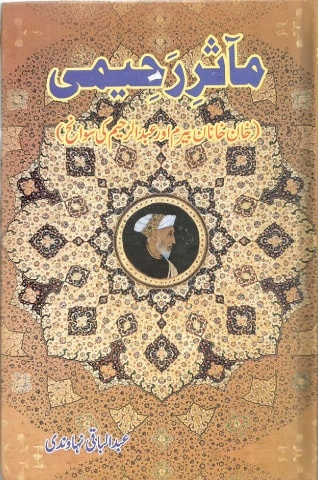
THERE are two proverbs in Urdu lexicon that pay tribute to Abdur Raheem Khan-i-Khanan’s generosity. Having stood the test of time for about four centuries, these proverbs indeed are testimony to the generosity of the great man who would conceal gold coins in the meals that he distributed to the public.
Abdur Raheem Khan-i-Khanan (1556-1627) was a minister at Mughal emperor Akbar’s court. Aside from being a sage, warrior, great administrator, strategist, a very magnanimous person and a great lover of books, he was a poet of Persian, Hindi and Urdu. He knew many languages and dialects of the subcontinent which is reflected in his poetry, too.
Abdur Raheem Khan-i-Khanan’s poetry — said to be composed in Urdu and/or Hindi — is in fact written in Brij Bhasha with some influence of Urdu’s other dialects, such as Awadhi and Gujari. His Urdu or Hindi poetry consists mainly of dohas, a genre of Urdu and Hindi poetry that has only two rhyming lines with limitations on metre it is composed in. It is said that Abdur Raheem Khan-i-Khanan had composed about 700 dohas in Urdu and/or Hindi. But no authentic version of his dohas is available.
Hasan Aziz Javed had published a book Abdur Raheem Khan-i-Khanan Aur Un Ke Dohe (Karachi, 1968) giving a brief intro and 74 dohas of Khan-i-Khanan. But many believe that the apocryphal Urdu and Hindi poetry attributed to Abdur Raheem Khan-i-Khanan lacks authenticity and its attribution to him is doubtful, though it was passed down to the people, generation after generation, and they are often quoted, gaining a folklore-like status. Some say dohas attributed to him were in fact creation of another poet, also named Raheem. But Hasan Aziz Javed in his book has cited a number of works, many of them preserved at the British Museum.
What lends authenticity to the poetry attributed to Khan-i-Khanan is that, according to Dr Hasan Beg, Khan-i-Khanan’s 12 books are preserved at the British Library. Dr Beg has discussed Khan-i-Khanan’s poetry in two supplements appended to Maasir-i-Raheemi, a book just published by Lahore’s Al-Faisal Nashiraan. The book is in fact a biography of Khan-i-Khanan Bairam Khan and Khan-i-Khanan Abdur Raheem, as the subtitle of the book also suggests.
Originally written in Persian by Abdul Baqi Nahavandi and translated into Urdu by Syed Mansoor Ali Suharvardy, the book has been edited by Shareef Hussain Qasmi and annotated by Dr Hasan Beg. A medical doctor by profession, Dr Hasan Beg lives in UK, but there is a researcher and historian in his inner self. That hidden dimension of him does not let him rest and he keeps on travelling, in search of historical sites and archaeological wonders. To compile his book Vaqae’-i-Babar, Beg travelled the entire route on which the Mughal emperor Babar had travelled from Ferghana to Agra. Dr Beg had also edited Debi Prashad Kayasth’s book Khan-i-Khanan nama, first published in 1879.
In his intro to Maasir-i-Raheemi, Dr Beg has mentioned that the original Persian work is extremely rare and its manuscripts are preserved at different libraries in the world. The manuscript by Nahavandi is incomplete as it ends at 1616 and Dr Beg has completed the biography with the help of different historical sources. He laments that in Urdu research works are a rarity and research is considered a thankless job in Urdu. It reminds one of Mushfiq Khwaja who once joked that only 17 copies of his book Tehqeeq nama that consisted of research papers were sold.
Jokes aside, in Urdu we do have research works but research on history and authentic historical sources are indeed scarce. One does hope that the book is received well in the literary and cultural circles in Pakistan (Dr Beg does not sound that pessimistic about India).
But an interesting supplement in the book is Hindutva Raheem, bringing another face of India. He says that a great stress is laid on Raheem’s “Hindi” poetry in India these days and any scholar whom he came across in India during his visit did recite a Hindi doha of Raheem. “The ‘Hinduisation’ of Abdur Raheem Khan-i-Khanan began in early 20th century. This has a deep connection with the rise of the Hindi language and the sectarian politics in India”, writes Dr Beg.
Aside from Raheem’s Urdu and Hindi poetry, the historical events and other details make the book an absorbing read as well as a historical record. What has turned it into an authentic and reliable source on Bairam Khan and Abdur Raheem, both titled Khan-i-Khanan, are the annotations by Dr Beg. The scholarly citations, annotations and footnotes amply prove Dr Beg’s profound knowledge of the subject. One does hope he will continue his journey, notwithstanding the response he receives from the readers.
Published in Dawn, October 9th, 2018














































Dear visitor, the comments section is undergoing an overhaul and will return soon.